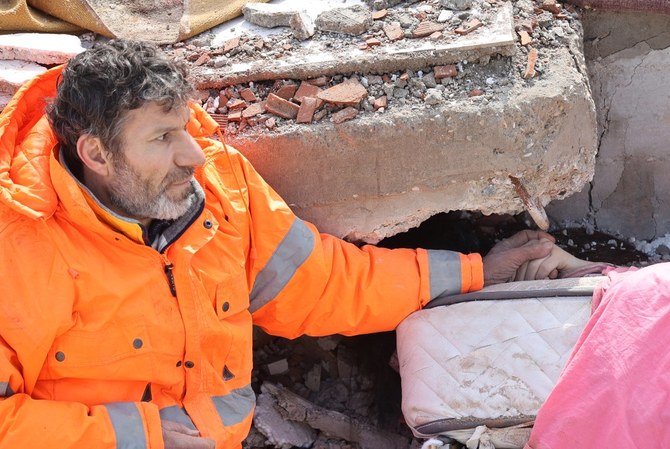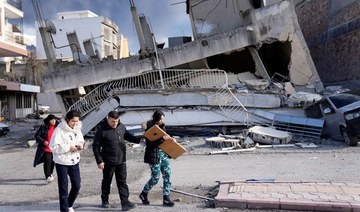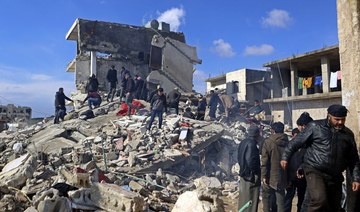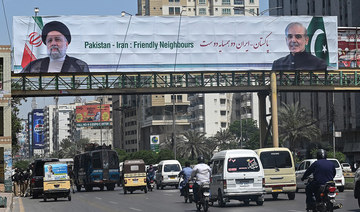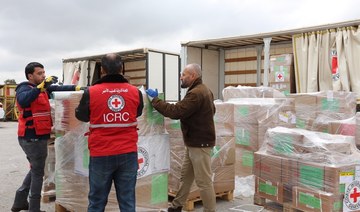ANKARA: Turkiye is praying for a miracle as the search continues for survivors of a massive earthquake that devastated southern regions of the country.
Heavy rain and snow are hindering efforts to save thousands of people trapped under rubble as the death toll continues to climb.
More than 5,000 people were killed and 15,000 injured in Turkiye and neighboring Syria when the magnitude 7.8 quake and a series of aftershocks struck in the early hours of Monday.
Turkiye’s President Recep Tayyip Erdogan has declared a state of emergency for three months in areas affected by the earthquake, the most severe in the country for 80 years.
The death toll in Turkiye stands at 3,500, with over 22,000 injured and 6,000 buildings destroyed. More than 8,000 survivors have been hauled from the ruins of collapsed buildings.
Authorities warn the number of dead will continue to rise.
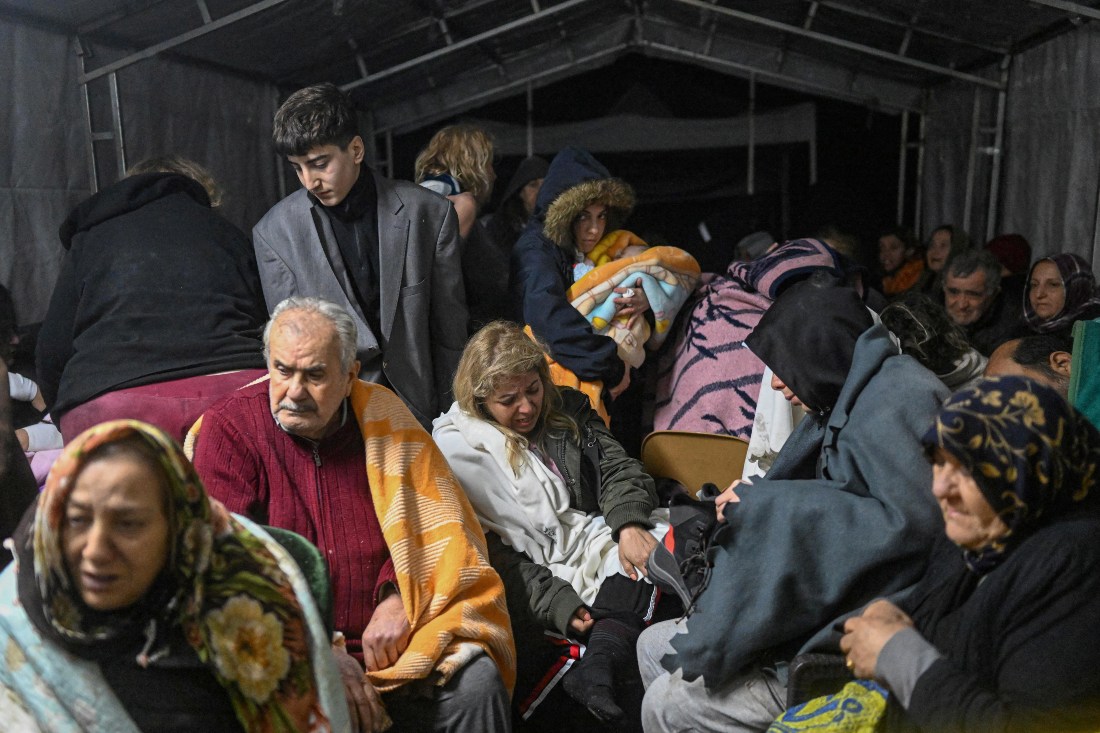
Turkiye’s President Recep Tayyip Erdogan has declared a state of emergency for three months. (AFP)
Turkiye has announced one week of national mourning and allocated $5.3 billion in emergency aid, while Turkish Airlines has carried more than 11,000 volunteers to the quake zone.
Tens of thousands of aid workers and emergency personnel have been sent to the affected area as part of national and international humanitarian assistance, with more 70 nations offering help.
Firat Gerger, a lawyer in the southeastern province of Sanliurfa, drove his wife and children to their country house after surviving the quake before returning to the city center to join rescue efforts.
“I began evacuating guests from the hotel I own in the Haliliye district of Urfa. Then we noticed that the columns of the building next to my hotel were cracking. The building tilted to one side. We quickly surrounded the building with ropes and moved away nearby cars,” he told Arab News.
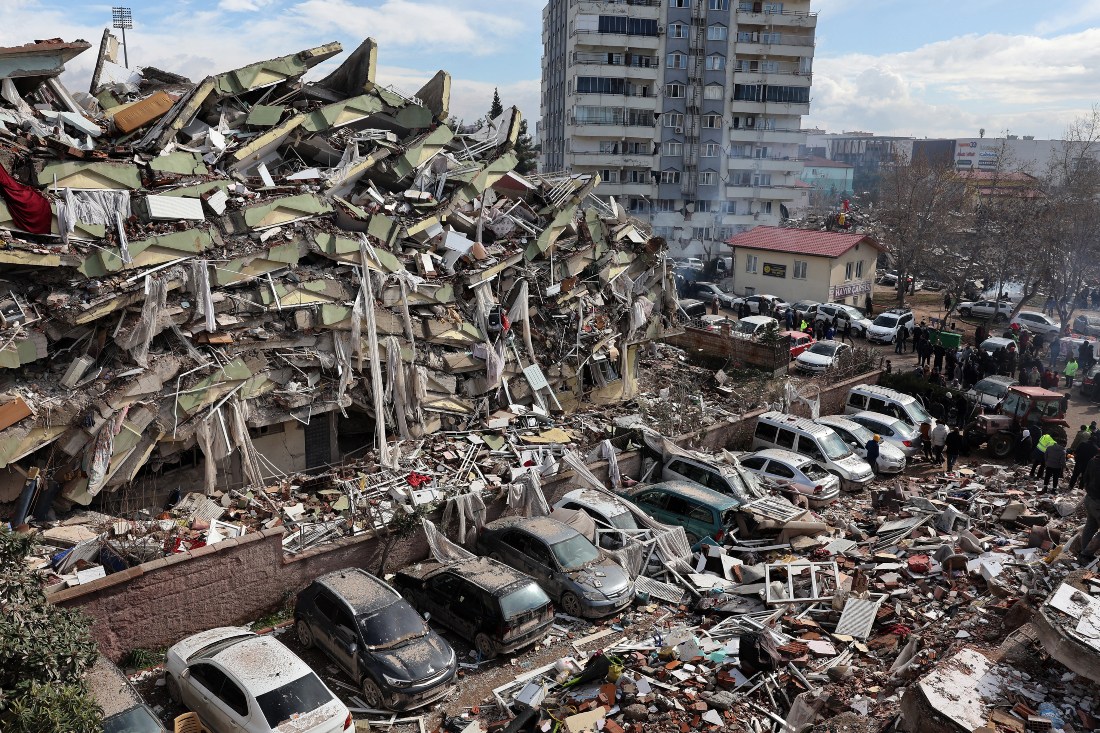
Thousands of buildings have toppled to the ground withthousands trapped inside. (AFP)
Gerger and his team climbed through a window into a veterinary surgery on the first floor of the building to rescue animals trapped inside.
However, their attempts to get a refugee family to leave their third-floor apartment ended in tragedy when the building collapsed shortly afterwards.
“We even threw a stone at their window to attract their attention,” he said. “The old building collapsed in seconds under a cloud of dust like in a horror movie,” he said.
The refugees were the only people to remain in the building after calls for evacuation. The bodies of five members of the family were found following the rescue operation.
Millions of Syrian refugees who fled the war in their country now live in the region.
Local people say that many buildings were not built to required standards to withstand earthquakes, and were never inspected properly.
New buildings, even those built only months ago, collapsed in the quake.
Serdar Ozsoy, a photojournalist who reached the port city of Iskenderun yesterday, was in the hard-hit Kirikhan district in Hatay province after the quake struck.
“It is one of the most affected zones. The damage is so widespread that rescue teams cannot be organized effectively. Today the humanitarian assistance seems much better than yesterday. I saw so many tents arriving for survivors. But the rain keeps falling and hampering rescue efforts,” he said.
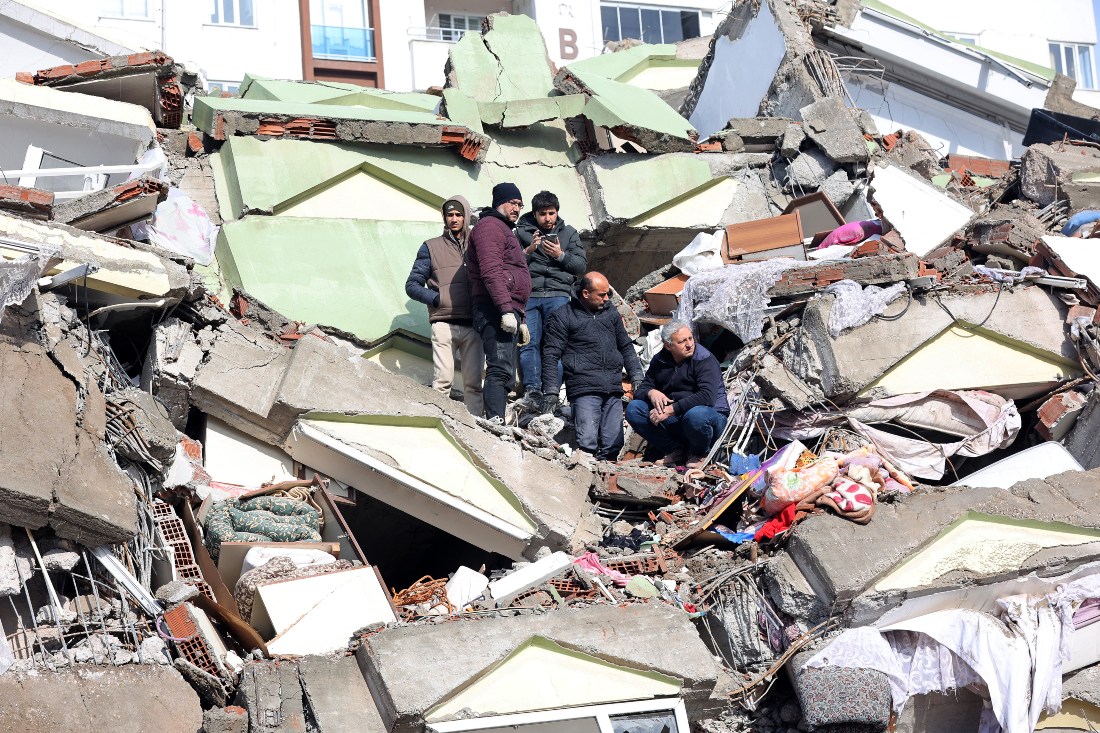
There have been hundreds of aftershocks. (AFP)
“The first day was critical to find survivors under the collapsed buildings. But now the chances to rescue people are diminishing, apart from miracle cases.”
Ozsoy said that he had talked to a survivor whose house had been ransacked while he was at the cemetery burying his mother.
“The thieves found a golden opportunity to break into his house and steal anything precious,” he said.
Rescue teams from Uzbekistan reached Kirikhan district early on Tuesday, while other international rescuers, including from EU countries, are working across the region.
Turkiye’s Red Crescent is also providing tents and blankets, along with mobile kitchens.
In Hatay, thousands of survivors are sheltering in their cars amid fears of further aftershocks.
“There is an urgent need for cash because there is no electricity and no ATM to draw money,” Ozsoy said.
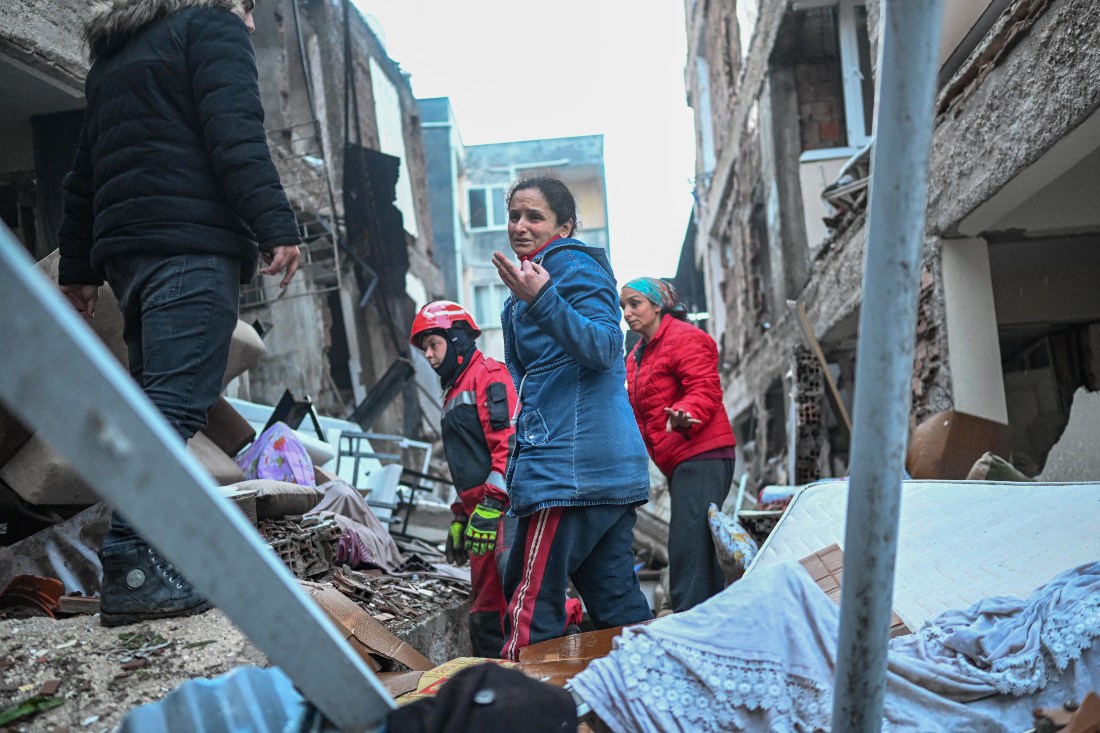
For many survivors have been left without shelter in the freezing temperatures. (AFP)
In other cities, such as southeastern Gaziantep, stocks of essential items are running low.
Ugur Poyraz, general secretary of the IYI Party, said there is no bread because natural gas supplies to the city were hit by the quake.
“Some local people are trying to distribute soup to the survivors with their own facilities,” he said.
In Hatay, Ghanaian football player Christian Atsu, who made 107 appearances for English Premier League side Newcastle and is now playing for the Turkish club Hatayspor, was rescued from a collapsed building.
Damaged roads, a fire that erupted in Iskenderun port and a blocked airport runway have made access to Hatay province more difficult.
Duygu Duman told Arab News that her relatives could hear voices beneath the rubble of a collapsed building in the center of Hatay, where her grandmother and aunt were trapped.
“My grandmother is very old, she cannot wait for so long. It is a race against time,” Duman said.
Another survivor, Ismail Keser, rescued his sister-in-law from the ruins of a five-story building in Antakya.
“We cannot enter the house because of the aftershocks,” he said. “I’m still involved in rescue efforts, but we are running out of hope. There is a chaos here,” he told Arab News.





